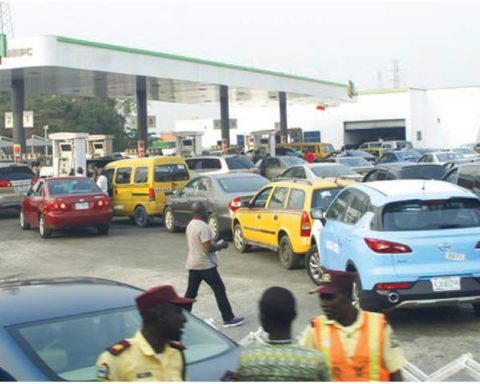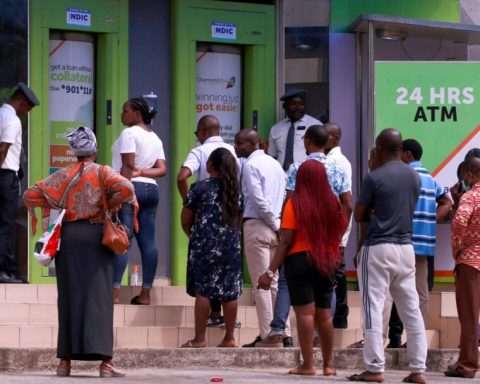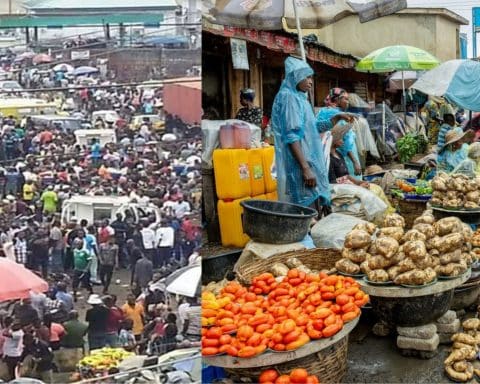Nigerian states are trapped in a cycle of rising debt despite the increased revenue allocations from the Federation Account. With the removal of the petrol subsidy, many expected an economic boost. However, a paradox has emerged; states are borrowing more, and their debt profile continues to rise.
According to fresh reports, 20 state governments borrowed a total of N446.29 billion to cover budget deficits and expenses. This borrowing spree occurs even as the Federation Accounts Allocation Committee (FAAC) disbursements have risen by 40% over the past year. This increase, mainly due to exchange rate gains, has not translated into better financial management.
Join our WhatsApp ChannelFAAC Disbursements and State Debts
From January to June 2024, FAAC disbursements to states, including derivation funds, amounted to N2.7 trillion. Comparatively, the total disbursements for 2023 stood at N3.58 trillion. Despite these allocations, many states are sinking deeper into debt. Debt servicing is eating into the funds meant for development projects.
For example, Osun, Ondo, Kaduna, and Cross River States have deficit figures of N10.94 billion, N27.72 billion, N15.83 billion, and N10.02 billion, respectively. These states are borrowing just to pay off previous debts and continue providing essential services such as salary payments, social services, and infrastructure.
“The situation is dire. State governments are borrowing heavily without addressing the root cause of the financial crisis,” says an economist from Lagos Business School.
Inheriting Debt and Rising Costs
Newly elected governors have not had it easy. Many inherited substantial debts from their predecessors. The combined domestic debts amount to N2.1 trillion, with an additional $1.9 billion in external debts. For all the borrowing, the situation on the ground—dilapidated schools, hospitals, and poor infrastructure—suggests little progress.
READ ALSO: Niger Anticipates Economic Recovery on the Back of Oil Revenues
Twenty-two states reportedly spent N251.79 billion just to service debt inherited from past administrations within nine months of assuming office. “The naira’s devaluation has only worsened the situation,” said a financial analyst, “as dollar-denominated debt has ballooned to unsustainable levels.”
Despite directives from the Federal Government to avoid external borrowing, some states continue to borrow from multilateral agencies. Ekiti, Cross River, and Ogun states recently proposed suspending foreign debt repayments worth $501 million, but their request was rejected.
The Impact of Poor Financial Management
The debt crisis exposes deeper weaknesses in how states manage resources and set priorities. Oversight by state assemblies has been minimal, and many states are at risk of defaulting on new minimum wage payments. Poor resource management is compounded by governors who spend recklessly on extravagant projects.
For instance, governors in the six South-Western states have allocated over N266 billion for airport construction, despite warnings from aviation experts that many of these airports are unviable. Around N160 billion has already been spent on such projects, with little benefit to the public.
“State governors are not accountable to anyone,” commented a local journalist. “They waste money on fancy projects that don’t benefit the people, yet they keep borrowing.”
Lavish Spending by State Governors
Many state governors are notorious for their extravagant spending on political allies and associates. Recently, the Kogi State Governor, Usman Ododo, appointed 1,192 additional aides. His counterpart in Kano, Governor Abba Yusuf, boasts a team of 196 aides, while Governor Ahmadu Fintiri of Adamawa appointed 182 special assistants.
Plateau State Governor, Caleb Mutfwang, has 136 special assistants, and Edo State Governor, Godwin Obaseki, follows with 186 aides. This culture of appointing excessive numbers of aides is adding to the financial strain on states, already struggling with debt.
Over-reliance on FAAC Disbursements
The root of this issue lies in the over-reliance on FAAC disbursements. While the FAAC funds offer a temporary financial boost, they do not encourage long-term financial sustainability. Currently, only three states—Lagos, Rivers, and Anambra—can function independently on internally generated revenue (IGR).
Governors need to create a more enabling environment for businesses to thrive. States should focus on attracting investments, promoting public-private partnerships, and generating internal revenue through business development.
“States should invest in initiatives that stimulate economic growth rather than spending on projects they can’t afford,” said an expert in economic development.
A Way Forward: Accountability and Financial Prudence
To address this crisis, Nigerian states need to embrace accountability and financial prudence. There must be a shift in how resources are managed, and governors should prioritise the basic needs of their citizens, such as education, health, and infrastructure.
Moreover, state assemblies must take their oversight roles seriously. Without proper accountability, funds will continue to be misused, and debts will continue to rise.
“Governors must be held accountable for every naira spent. Without transparency, we will keep repeating the same mistakes,” says a civil society leader.
The cycle of rising debt amid rising revenues in Nigerian states is unsustainable. If financial mismanagement continues, many states could face economic collapse. It’s time for states to re-evaluate their priorities, improve internal revenue generation, and practice sound financial management.
Emmanuel Ochayi is a journalist. He is a graduate of the University of Lagos, School of first choice and the nations pride. Emmanuel is keen on exploring writing angles in different areas, including Business, climate change, politics, Education, and others.



















Follow Us